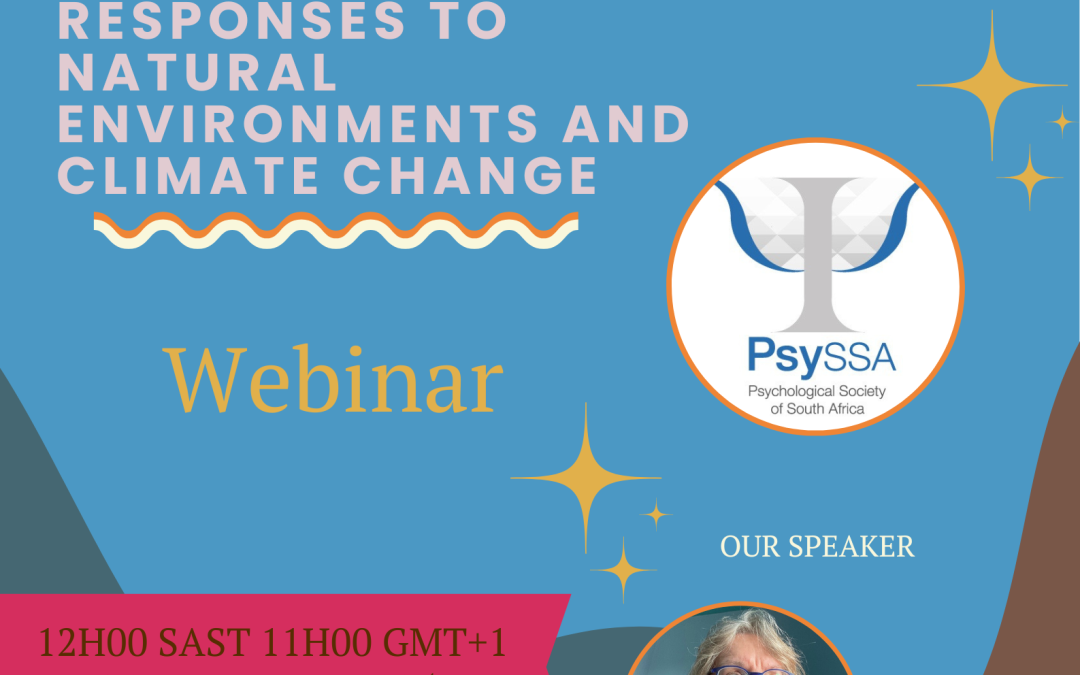
CEPD Webinar: Psychology and Global Climate Change
CEP Divisional Webinar: Psychology and Global Climate Change

About this Webinar
Date: 11 September 2025
Time:
- SAST 18:00 – 19:00
Platform: Teams
Climate change presents a serious and growing global challenge, and psychologists have a role to play in responding to it. This presentation will review psychological research to address three topics. First, what are the factors that make it difficult for people to understand the problem and recognize the risk? These factors include cognitive, emotional, and social barriers. Second, how does climate change affect mental health and well-being, and how do these impacts vary among different groups? The impacts of climate change-associated events such as major storms and flooding can be easily understood, but we also need to consider the impacts of gradual changes in the climate, indirect impacts from involuntary displacement or economic costs, and anxiety associated with awareness of climate change. Finally, how can psychological tools be used to promote resilience on both a personal and societal level? Existing strategies for dealing with depression, anxiety, and PTSD will be helpful, but additional approaches that address systemic change are needed. I will close with some recommendations for how psychology as a discipline can respond to the growing threat of climate change.
See the link below to join!
Susan Clayton is the Whitmore-Williams Professor of Psychology at the College of Wooster in Ohio. She received her PhD from Yale University, in social psychology. Dr. Clayton’s research examines people’s relationship with the natural environment, how it is socially constructed, and how climate change affects mental health and well-being. She is co-author of the widely-used Climate Change Anxiety Scale, as well as the Environmental Identity Scale, both of which have been used and validated in countries around the world. She is author or editor of six books, including Identity and the Natural Environment, Conservation Psychology, and Psychology and Climate Change, and is currently the editor of the Cambridge Elements series in Applied Social Psychology. A fellow of the American Psychological Association and the International Association of Applied Psychology, she is on the editorial boards for the Journal of Environmental Psychology, Environmental Research: Health, and OneEarth, and was a lead author on the Sixth Assessment Report of the Intergovernmental Panel on Climate Change. Her current research focuses on impacts of climate change on mental health as well as on future planning. She also hopes to promote a positive vision for the future that emphasizes the interdependence between humans and nature.
















